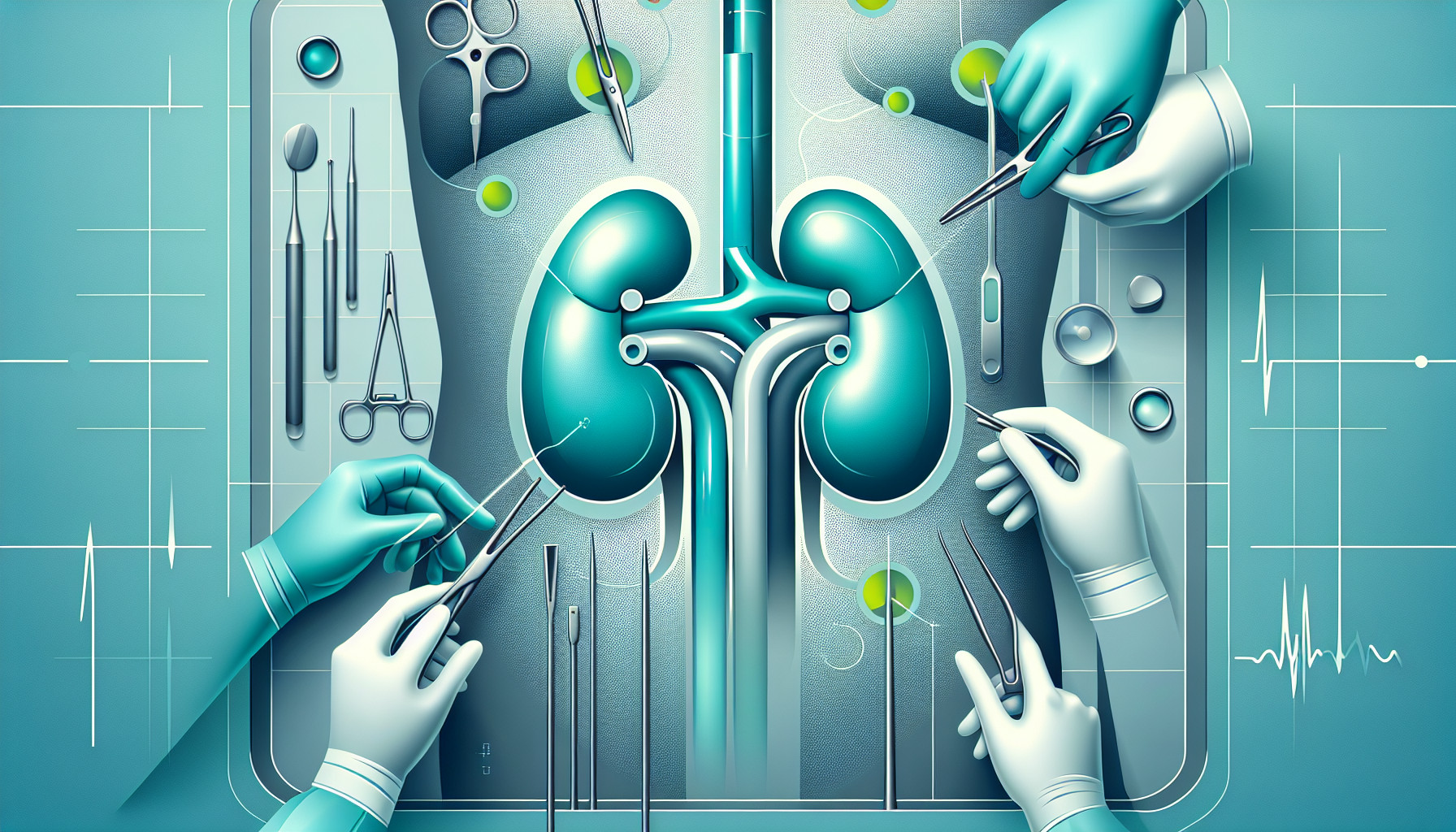Our Summary
The research paper discusses the common neurological problems that can occur after having a kidney transplant. Kidney transplantation is the best treatment for patients with severe kidney diseases. However, it often leads to complications due to the body’s response to the new organ, infections and other health issues that the patient might already have. Neurological disorders are common in patients post-kidney transplant. These neurological disorders can increase the risk of disease and death for these patients. The paper reviews these disorders, which include infections, cognitive decline, conditions related to medication, cancer, seizures, and other neurological complications.
FAQs
- What are some common neurologic disorders that can develop after a kidney transplant?
- What are the potential complications associated with kidney transplantation?
- How do immunosuppressive medications impact kidney transplant patients?
Doctor’s Tip
One helpful tip a doctor might tell a patient about kidney transplant is to closely follow their prescribed medication regimen, especially immunosuppressive medications, to prevent rejection of the transplanted kidney. It is important to attend all follow-up appointments and communicate any changes in symptoms or concerns with your healthcare team. Additionally, maintaining a healthy lifestyle with regular exercise and a balanced diet can help support overall kidney health post-transplant.
Suitable For
Patients who are typically recommended for kidney transplant are those with end-stage kidney disease (ESKD) who have exhausted other treatment options such as dialysis. These patients may have complications from their ESKD such as fluid overload, electrolyte imbalances, and anemia that can be better managed with a functioning kidney transplant. Additionally, patients who are relatively young and otherwise healthy are good candidates for kidney transplant as they are more likely to tolerate the surgery and immunosuppressive medications.
Patients who have a suitable living donor, such as a family member or friend, are also recommended for kidney transplant as they have a better chance of finding a compatible donor and avoiding the long wait times associated with deceased donor transplantation. Patients with certain comorbidities such as diabetes and hypertension may still be considered for kidney transplant, but they may require additional monitoring and management to ensure a successful outcome.
Overall, the decision to recommend kidney transplant for a patient is based on a thorough evaluation of their overall health status, potential risks and benefits of the procedure, and the availability of suitable donors. It is important for patients to work closely with their healthcare team to determine the best treatment option for their individual situation.
Timeline
Before kidney transplant:
- Diagnosis of end-stage kidney disease (ESKD)
- Evaluation for kidney transplant eligibility
- Placement on the transplant waiting list
- Pre-transplant evaluations, including blood tests, imaging studies, and psychological assessments
- Finding a suitable kidney donor (living or deceased)
- Pre-operative preparations, including dialysis and medications
- Surgery to remove the diseased kidney (if necessary)
After kidney transplant:
- Immediate post-operative recovery in the hospital
- Monitoring for signs of rejection or complications
- Initiation of immunosuppressive medications to prevent rejection
- Regular follow-up appointments with the transplant team
- Monitoring kidney function through blood tests and imaging studies
- Adjustment of medications to prevent infections and other complications
- Rehabilitation and lifestyle changes to promote kidney health
- Long-term monitoring for signs of rejection, infections, and other complications
- Potential need for additional surgeries or treatments related to the transplant
- Improved quality of life and overall health for the patient.
What to Ask Your Doctor
Some questions a patient should ask their doctor about kidney transplant include:
- What is the success rate of kidney transplant surgery?
- What are the potential risks and complications associated with kidney transplant surgery?
- How long will I need to take immunosuppressive medications after the transplant?
- What are the side effects of the immunosuppressive medications?
- How often will I need to have follow-up appointments and tests after the transplant?
- How will a kidney transplant affect my overall health and quality of life?
- What lifestyle changes will I need to make after the transplant?
- How can I reduce my risk of developing infections after the transplant?
- What symptoms should I watch out for that could indicate a complication or rejection of the transplanted kidney?
- Are there any specific neurologic complications that I should be aware of after the transplant?
Reference
Authors: Meena P, Bhargava V, Rana D, Bhalla A, Gupta A. Journal: Kidney360. 2020 Jun 16;1(8):837-844. doi: 10.34067/KID.0002052020. eCollection 2020 Aug 27. PMID: 35372958
